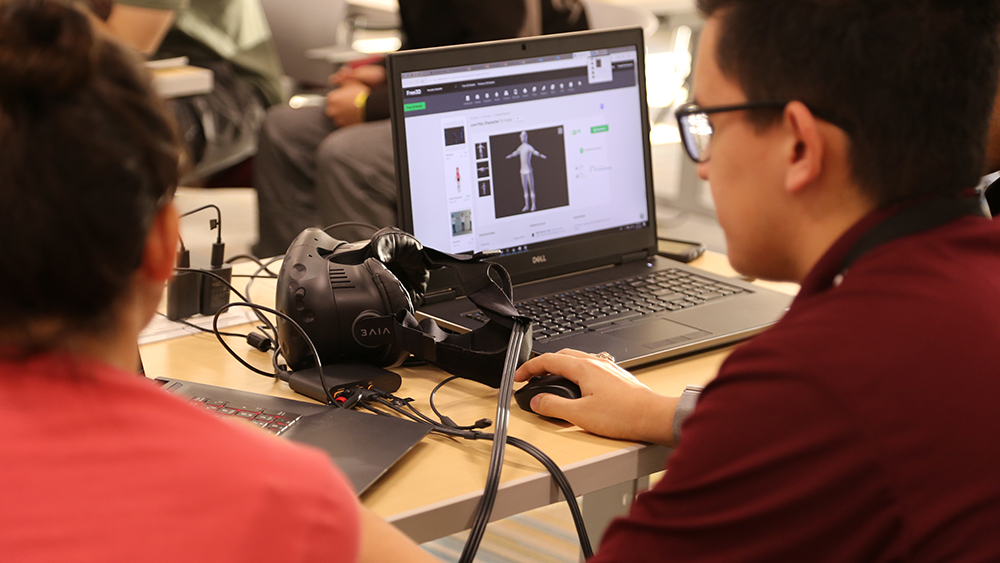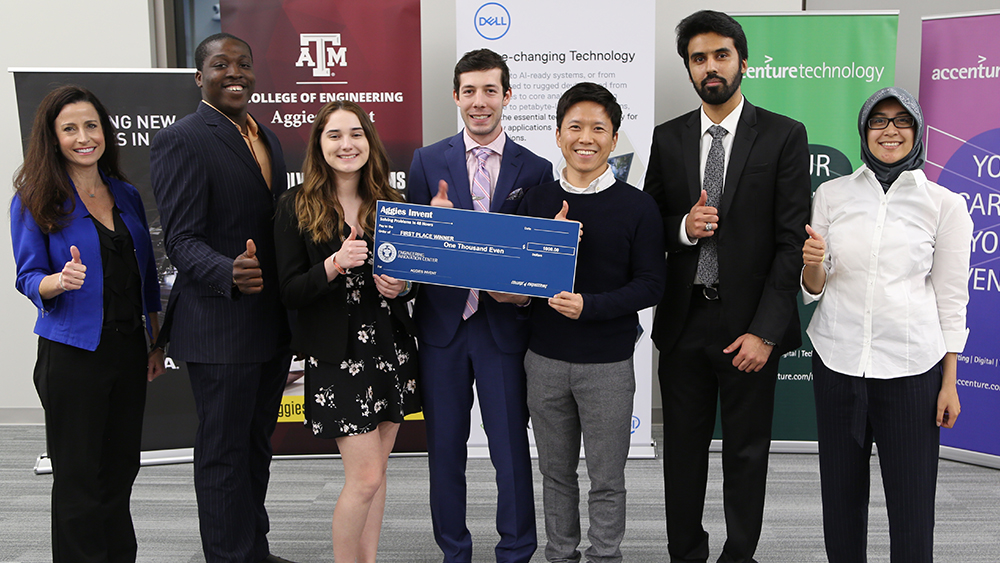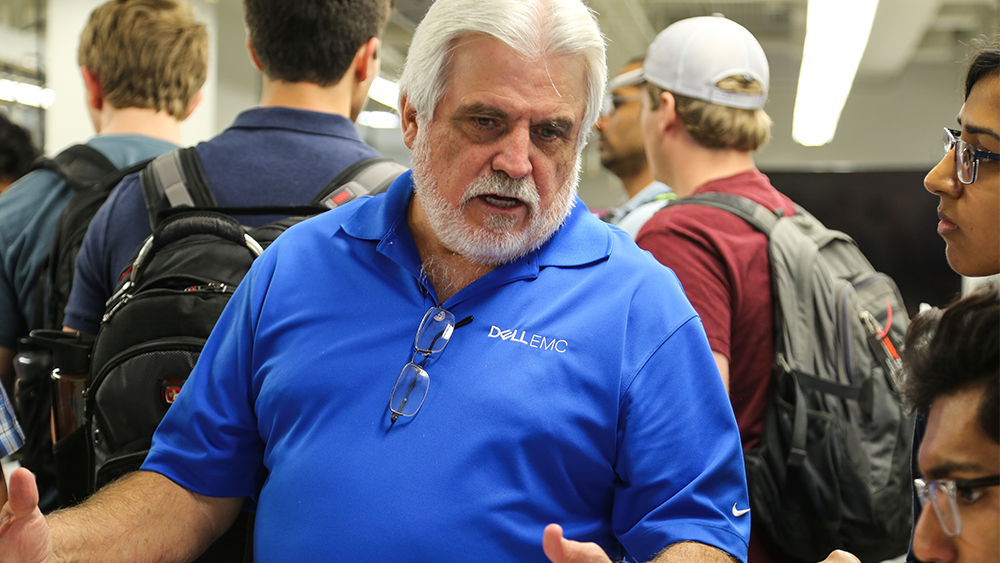
From the operating room to the battlefield, augmented and virtual reality are poised to change the future of how we live. This past weekend, more than 50 Texas A&M University students spent 48 hours solving problems and conceiving new uses for the technology. Their ideas ranged from collaborative office platforms that would allow companies to work together from anywhere around the globe, to a combat simulator that would give soldiers additional training that could save lives. In the end, it was a multidisciplinary team of students who took home the grand prize — $1,000 and a brand-new Dell Workstation laptop.
The first-place team developed Phobi-App, a mobile-based app to help people overcome their fear of public speaking by providing a virtual environment to simulate various social situations. The app would also sync up with wearable health trackers to record heart rate and monitor the users’ progress. They chose public speaking because it is one of the most stressful situations for many people. However, they showed how their app could be extended to treat other phobias.

Linda Bustaman, Phobi-App team member, said that public speaking is one of the biggest fears that Americans face, and her team wanted to come up with a solution to this problem. The need statement asked students to design a platform for “exposure therapy” to benefit people with phobias.
“I’ve always been interested in the medical field as well as virtual reality and gaming,” she said. “I’ve always been split between the two, and I don’t want to give up one to do the other. This need statement let me do both.”
She’s studying biomedical engineering and hopes to one day work for Fjord, an Accenture company that combines designing and consultancy. The opportunity to network with the company was one of the reasons she wanted to participate.

Representatives from Dell, Accenture and Fjord partnered with the Engineering Entrepreneurship Program and made this event possible. Each company sent representatives who served as mentors and judges, while also providing students an opportunity to network.
Olusola Babatunde, a member of team Phobi-App, has participated in four Aggies Invent events so far. The mechanical engineering major said that the design competition has shown him why engineering is important.
“The industry I’m interested in is mostly design and product development,” he said. “The whole process of developing a product, coming up with solutions and requirements is exactly what I will be doing in the real world.”
Other members of the winning team included Christian Schommer ‘20, computer science major; Hamza Hamid ‘18, industrial and systems engineering major; and Namgyun Kim, Ph.D. student in the College of Architecture.
The second-place team, BestFit, designed an app that allows online shoppers to use augmented reality to virtually try on clothing before making a purchase. Third-place team VizMat designed a virtual reality platform that would help students study molecular structures.
Jennifer Sigmund, senior higher education strategist for Dell EMC, served as a mentor at this Aggies Invent. She said it was inspiring being able to work with such talented and motivated students who are interested in changing the world.
“With the likelihood of workforce shortages in many industries, Dell needs to be looking for new ways to help build a future-ready workforce,” Sigmund said. “Today’s students — who are digital natives — are the key to solving real-world problems. Dell is interested in partnering with programs like Aggies Invent to help tap the potential of budding innovators by giving them an opportunity to show off their tech savvy and entrepreneurial skills.”
The next Aggies Invent — Invent for the Planet — will take place in February when Texas A&M will be joined by more than 30 universities around the world for a global 48-hour design challenge.